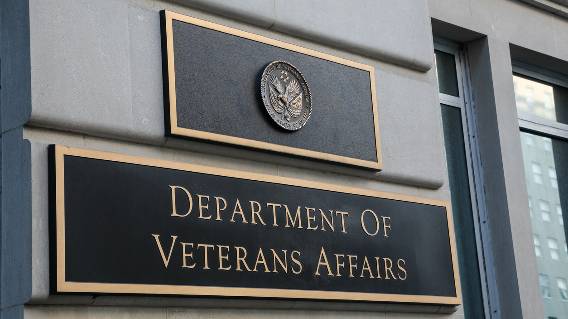Thousands of Camp Lejeune Disability Claims Mishandled by VA
Editors carefully fact-check all Consumer Notice, LLC content for accuracy and quality.
Consumer Notice, LLC has a stringent fact-checking process. It starts with our strict sourcing guidelines.
We only gather information from credible sources. This includes peer-reviewed medical journals, reputable media outlets, government reports, court records and interviews with qualified experts.

Passage of the Camp Lejeune Justice Act on Aug. 10 gave veterans legal recourse following years of exposure to contaminated water at the Marine Corp base. Now, earlier mishandling of claims by the Veterans Administration has fueled a surge in civil lawsuits.
From 2017 to 2021, the VA made errors in more than 21,000 disability claims involving water contamination at Camp Lejeune, leading more veterans and their families to seek justice.
A report from the U.S. Department of Veterans Affairs, Office of Inspector General said almost 40% of the disability claims from the North Carolina base were processed incorrectly. The report was made public Aug. 25, confirming what struggling veterans have been saying for years – that mistakes were being made by the VA.
Data from the Veterans Benefits Administration showed that 57,500 disability compensation claims related to Camp Lejeune were filed during that four-year period, and 71% of them were denied.
More than a third of all claims filed were handled incorrectly, according to the report. A majority of the mistakes resulted from VA staff prematurely denying claims before requesting additional evidence of injury and exposure to the contaminated water.
“Veterans were not informed of the specific evidence needed to support the claim before the decision,” the report said. “Some of the veterans’ claims might have been granted if veterans had been notified of evidence needed to decide their claims.”
VA Mistakes Resulted in Claim Denials, Incorrect Benefit Payouts
The premature denial of claims increased the risk that some veterans did not receive the benefits to which they were entitled. The report did not estimate the number of cases that would have resulted in disability payouts.
Of the claims that were approved, 2,300 were assigned incorrect effective dates of benefits entitlement, resulting in the underpayment of $13.8 million to veterans.
The mistakes made by the VA have increased the focus on the long-awaited Camp Lejeune Justice Act, which allows legal action to be taken for the first time by those harmed by the toxic water.
Under the new law, the U.S. government cannot assert immunity from litigation. It also overrides the North Carolina state law that previously prohibited the filing of claims after 10 years, which prevented those harmed from seeking compensation.
Civil Lawsuits on the Rise
The Camp Lejeune Justice Act is part of the broader, $300 billion Honoring Our PACT Act of 2022, the most comprehensive toxic exposure legislation ever passed for military veterans and their families. It allows those affected at the base to file Camp Lejeune lawsuits.
Before the bill was passed, the Congressional Budget Office estimated the cost of compensating those affected by the Camp Lejeune contaminated water at $7 billion.
According to the recent report, the Agency for Toxic Substances and Disease Registry estimated that 1 million individuals who lived or worked at Camp Lejeune could have been exposed to the toxic water from 1953 to 1987.
That number includes active-duty military personnel and family members, Army Reserve, National Guard and nearby civilians.
On-base industrial activities and an off-base dry cleaning facility were responsible for the contamination of the wells and water supply system at Camp Lejeune. Among the toxic compounds found were dangerously high levels of vinyl chloride, trichloroethylene, tetrachloroethylene and benzene.
Certain Medical Conditions Deemed Service-Connected
In an effort to simplify disability claims related to that 34-year window of contamination, the VA in 2017 established a presumption-of-service connection for illnesses related to the exposure.
The conditions included Parkinson’s disease, adult leukemia, bladder, kidney and liver cancer, non-Hodgkin lymphoma and multiple myeloma. The presumption allowed veterans from Camp Lejeune to file disability claims without having to prove their conditions were connected to active duty.
The 57,500 disability claims in this report included both presumptive and nonpresumptive conditions. Nonpresumptive conditions required more proof that the disability was service connected at Camp Lejeune.
Although veterans had suspected contamination from many decades ago, water testing didn’t uncover the sources of that contamination until the early 1980s. Many veterans did not become sick until decades later.
All legal claims now must go through the U.S. District Court for the Eastern District of North Carolina. Included in the law is an offset provision that may adjust the payout or future benefits already provided. This law gives potential claimants just two years from the day it was signed to file a claim.